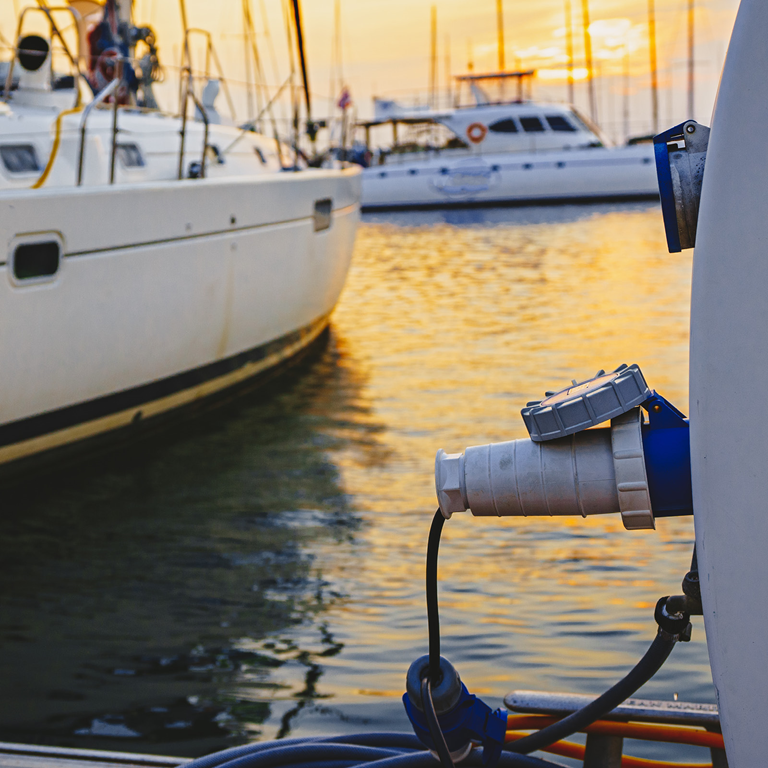After what feels like a long winter, spring is finally on its way, so it's almost time to weigh anchor and plan long summer days enjoying saltwater sprays.
But before setting sail, there are some important pre-season checks to ensure passengers' safety, and preparation to avoid costly repairs to your boat. This process can feel overwhelming and long-winded if you're new to owning a boat. But the time you invest now will keep your boat in the best possible condition. Here are some key things you need to do before enjoying your first trip of the year.
Start with a spring clean
You’ve no doubt prepared your boat for winter storage with a deep clean, so now's the time to give it a top-to-bottom spring scrub inside and out.
Be sure to remember your window hatches and any wooden finishes, making sure they're also well-oiled. Apply a good coat of wax to prepare and protect it for this year's sailing. Make sure all drains and scuppers are clear and look for any significant cracks, punctures, or holes in the hull that need repairing.
Mechanical maintenance
We recommend booking an annual service with maintenance experts. Still, there are many tasks that you can carry out yourself with minimal equipment.
Take some time to check everything is in tip-top working condition, including:
- Engine – check for overall corrosion, and inspect the air filters and impeller.
- Battery – inspect the charge level, clean any connectors, or replace them if necessary.
- Fuel tank - look for any sign of water/contamination in the fuel tank, replace any cracked or old fuel hoses, check clamps for rust and ensure no vent blockages or leak.
- Spark plugs – need frequent attention; this is the ideal time to check and replace them.
As well as mechanical inspections, check all the electrical fittings and test the systems using a multimeter. Ensure all electrical equipment is clear of the exhaust and bilge and wiring is secured. Burnt-out bulbs or loose wires can be a safety concern, and a lack of navigational lights risks non-compliance with local boating regulations.1 You should also check any sails, ropes and running rigging for wear and deterioration.
Safety equipment
You can never be too thorough regarding safety on the water, so it’s essential that you carry out a full inspection and inventory of your safety equipment before you sail. Replace anything that shows signs of wear. Check that bilge pumps operate correctly and essentials are in good condition and have been serviced recently, including:
- Lifejackets
- Life-rafts
- Emergency Position-Indicating Radio Beacons (EPIRBs)
- Personal Locator Beacon (PLBs)
- Fire extinguishers
- Flares etc.
If you're venturing further afield than usual, the Royal Yachting Association (RYA) has a helpful safety equipment list.2
Check the boat's lights and horn, and ensure that lifelines and rails are secured and not showing signs of corrosion.
Check your paperwork
Make sure your registration is up to date. Commercial and pleasure boat registration covers you for five years. You'll be sent a renewal notice when it's time to renew.3
Whilst it's not a legal requirement to have boat insurance in the UK, like your home or your car, anything you invest time and money in is worth protecting.
However, if you keep your boat in a marina, harbour, or a regulated lake or travel abroad, you will need insurance. Some household policies do have an extension to include cover for dinghies and small yachts. Still, there can be restrictions on size, value, and engine power.
Consult with an expert
We advise getting a qualified second opinion if you're new to boating and this preparation process feels overwhelming. If you have concerns, don't take any risks. Speak to a boating mechanic or other boat owners and research the internet. You’ll find lots of handy tips and videos to learn about boat maintenance.
Time to set sail
With all the essential checks completed, you'll be ready to set sail, whether you plan to explore new places or enjoy some freedom and tranquillity.
Our expert team at Bishop Skinner Marine would be delighted to discuss your sailing plans and arrange insurance protection that meets your individual needs. Please visit our website to find out more about our marine travel solutions. With options to buy online or receive advice from our expert team over the phone, we like to make it really simple. Get in touch with our friendly team today.
Sources


